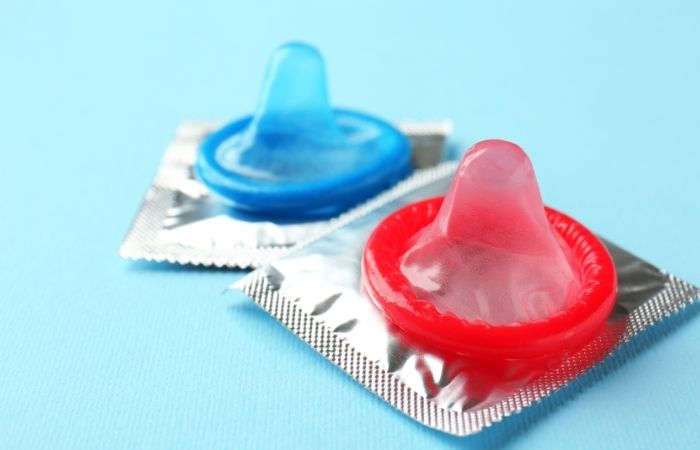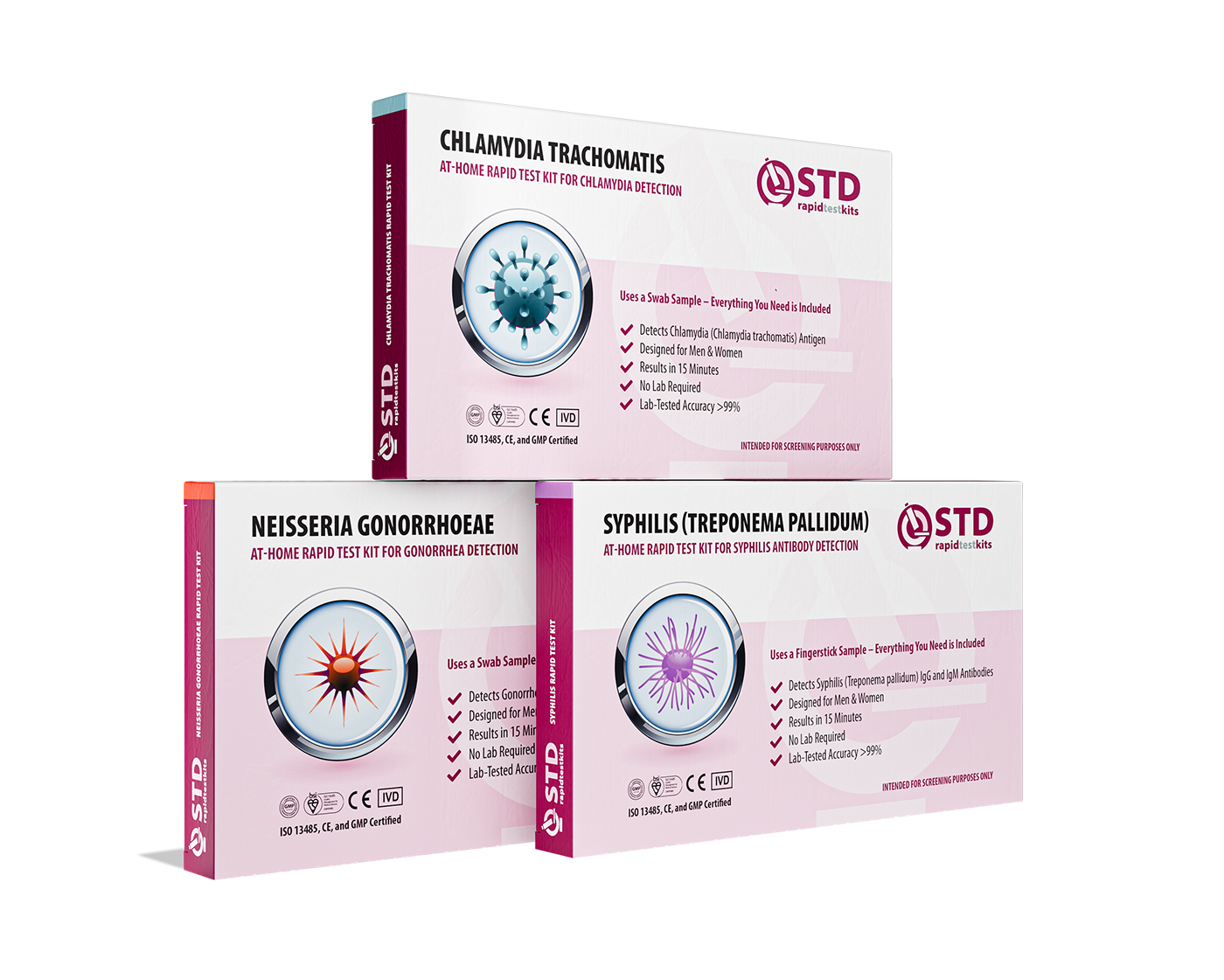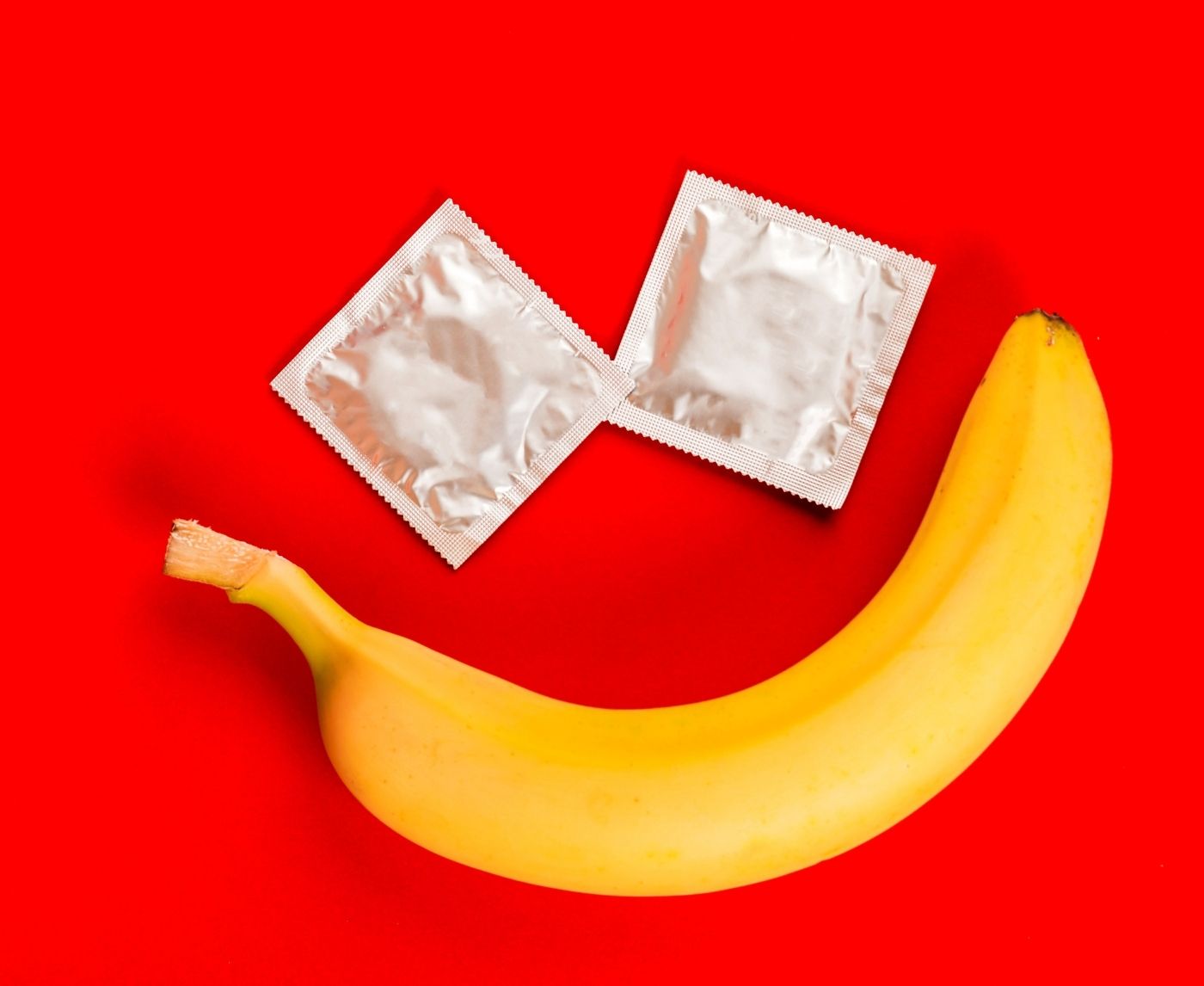Quick Answer: Yes, you can get an STD from fingering, especially if there are cuts, cracked skin, or infected fluids involved. Latex gloves reduce the risk and can be part of safer, hotter sex.
This Isn’t Just “Irritation”, Why the Burn Matters
If you're here because you typed something like "fingered now it burns" into Google at 2AM, you’re not alone. Burning after fingering isn’t always just friction, it can signal something more serious. That stinging sensation, especially when paired with spotting, weird discharge, or internal pain, could mean exposure to an STI like chlamydia, gonorrhea, HPV, or even herpes. What’s more? These can all be transmitted from fingers, yes, even clean ones.
One study published by Verywell Health confirms that STIs can pass through microscopic tears or skin-on-skin contact. Even if your partner isn’t showing symptoms, their fluids can still carry risk. And if your fingers had cuts or cracked cuticles? That’s an open door.
Here’s the kicker: condoms, dental dams, and gloves are all part of safer sex strategies, but we rarely talk about gloves. They’ve been typecast as “clinical,” “kinky,” or “extra.” But the science is clear: wearing gloves dramatically reduces STI transmission during finger play, especially if there’s blood, anal contact, or toy use involved. They protect you. They protect your partner. And yeah, they can look hot as hell, too.

People are also reading: One Tiny Sore, One Huge Problem: The First Red Flag of Syphilis
“I Didn’t Even Think It Counted As Sex”
Ty, 28, shared their story anonymously:
“We used gloves when we did anal fisting, but not for the rest. Like, I didn’t think fingering counted. It was just hands. But I ended up with BV and tested positive for chlamydia. I was so confused, I hadn’t had ‘real sex’ with anyone new in months.”
That mindset, "just fingers", is why so many infections go unnoticed and untested. SERC and the Planned Parenthood Safer Sex Guide both underscore this: manual sex isn’t immune from risk. And if you’re using the same fingers for vaginal, anal, or oral contact, especially without washing or swapping gloves, you’re not just passing pleasure. You’re potentially passing bacteria, viruses, and everything in between.
Let’s be real: most people don’t glove up for every touch. But even occasional glove use can reduce risk, especially during high-risk play like fisting, anal fingering, or anything involving blood, roughness, or multiple partners. Gloves aren’t just for sterile settings, they’re a smart, sexy, and deeply underrated move.
How STIs Actually Spread From Fingers
You don’t need a penis in the picture to get an STI. According to ASHA, here’s how STIs spread during finger play:
When fingers come into contact with vaginal fluids, semen, blood, or anal secretions, they can pick up pathogens like chlamydia, gonorrhea, HPV, and herpes. If those fingers are then used on another person, or the same person, just switching between holes, they become vectors for transmission. It doesn’t matter how short the contact was. And unless you're using fresh gloves for each act (or washing thoroughly between), you're not playing it safe.
Even something like HPV, often dismissed as “harmless”, has been found on the hands and under fingernails of infected individuals, according to this HPV-focused review. The same goes for herpes simplex virus, which can enter through tiny cracks in the skin. Once it’s in your body, it’s there for life.
If you've got eczema, cuts, fresh hangnails, or just finished biting your nails to the quick, your hands are more vulnerable than you think. You may not see a wound, but the virus doesn’t care. It just needs a way in.
And for those thinking, “I don’t see symptoms, so we’re fine,” consider this: most people with chlamydia and gonorrhea show zero outward signs. No rash. No discharge. No pain. Just silent inflammation waiting for the next touch.
And that’s why glove play isn’t “extra.” It’s smart. It’s simple. It’s sexy. And it’s seriously overdue for a mainstream comeback.
“Are You a Nurse or Something?”: The Stigma Around Safer Touch
When I first pulled out gloves during a hookup, the guy laughed. “What are you, a nurse?” he said, grinning but clearly put off. That moment stuck with me. Because underneath the joke was something real: the idea that taking safety seriously made me uptight. Or worse, a buzzkill.
This is what happens when we’re taught that “clean” equals “unprotected.” As if real intimacy means trusting someone enough to skip the gloves, the lube, the barriers. It’s bullshit, and dangerous. Because gloves don’t mean you’re scared. They mean you’re informed. They mean you understand that being careful isn’t the opposite of being hot. It’s part of it.
Performer and sex educator Jiz Lee calls gloves “one of the most underrated safer sex tools,” and they’re right. Gloves can be colorful, scented, textured. They can be a turn-on, not a warning sign. Especially in queer and kink spaces, where sex often includes hands, toys, and body parts that don’t fit the standard condom narrative.
But if you grew up with abstinence-only sex ed, or no sex ed at all, you probably never heard a single mention of gloves outside a dentist’s office. You were taught about condoms. Maybe dental dams. But gloves? Too taboo. Too “other.” Too associated with people who have something to hide.
It’s time we reframe that. Gloves are for people who have something to protect: their health, their pleasure, their partners.
Check Your STD Status in Minutes
Test at Home with Remedium3-in-1 STD Test Kit

 For Men & Women
For Men & Women Results in Minutes
Results in Minutes No Lab Needed
No Lab Needed Private & Discreet
Private & DiscreetOrder Now $69.00 $147.00
For all 3 tests
What Glove Play Actually Looks Like
Here’s what no one tells you: using gloves doesn’t slow you down. It just makes everything smoother, literally and emotionally. Let’s walk through it.
You’re with someone new. The mood is good. You’ve got a glove stashed in your nightstand. Not hospital white, these are black, latex, snug-fitting. You roll one on. It makes a soft snap against your wrist. You add a generous pump of water-based lube. The glide is immediate. No drag, no resistance, no rough nails scraping delicate skin. Just slick, intentional pressure.
Your partner breathes out. They say, “That feels amazing.” And you don’t worry about hangnails or microtears or bacteria from that beer bottle you were holding an hour ago. You’re in the moment, not in your head. You shift positions. Use two fingers. Then three. Then maybe a toy. All without stopping to wash your hands, because the glove acts like a second skin. When you’re done, you peel it off inside-out, toss it, and the cleanup is done in seconds. No stress. No guessing game.
That’s what good glove play feels like: care that enhances, not interrupts. Risk-reduction that doesn’t reduce pleasure. That’s the energy we’re bringing into the bedroom now.
Cleaning Rituals That Actually Work
Using gloves is only part of the picture. If toys or fingers are in the mix, so is cleanup, and most people aren’t doing it right.
Finger cots (single-finger barriers) can help during solo play or spot-specific stimulation, but full gloves are better for partner sex or any multi-hole interaction. And no matter what you use, here’s the rule: once a glove or toy has been inside one body part, you don’t reuse it elsewhere without washing or changing it. Vaginal to anal? Fresh glove. Oral to toy to hand? Rinse, re-lube, glove up again.
Soap and warm water work fine for silicone toys. But some porous materials (like jelly rubber or cyberskin) trap bacteria no matter how hard you scrub. If your toy is starting to smell off, feel tacky, or look discolored, ditch it. It’s not worth the risk. And yes, gloves can expire too. Latex gets brittle. Powdered gloves can irritate sensitive tissue. Check the box. Buy quality. Keep them dry and cool.
Oh, and wash your hands before you glove up. Because gloves aren’t magic. They can tear. They can carry whatever you had on your fingers into your partner’s body. Don’t skip hygiene just because you’ve got latex on your side.
This isn’t about fear. It’s about respect. Ritual. Intention. You prepare for pleasure the way you prep a good meal: clean tools, good ingredients, and care in every move.
Testing Isn’t Just for “Real Sex”
Here’s one of the most dangerous myths out there: that you don’t need STD testing unless there was penetration. That’s dead wrong. The CDC has confirmed that oral, manual, and even skin-to-skin contact can transmit infections. Halifax Sexual Health Centre reports that chlamydia and gonorrhea have been transmitted during finger play alone, especially when gloves or hygiene were skipped.
If you’ve been experiencing symptoms, itching, burning, spotting, discomfort, or even if you’re just anxious after a new encounter, get tested. It doesn’t have to be in a clinic. It doesn’t have to be awkward. Rapid, at-home test kits are discreet, fast, and medically backed.
This combo test kit checks for the most common STDs and gives you results in minutes. Whether it’s a symptom or just a hunch, don’t guess, know.
Testing isn’t an admission of guilt. It’s an act of love. Of responsibility. Of showing up for yourself and whoever you touch next.

People are also reading: The Chlamydia Crisis: America’s Most Common STD Isn’t Going Away
When Kink Got It Right (Before Everyone Else)
Before gloves were trending on sex-ed TikTok or stocked in boutique toy shops, they were already ritual in kink spaces. BDSM communities, especially queer-led ones, have been using gloves for decades, not just for health, but for power, intention, and respect.
Maya, 34, a switch who organizes monthly play parties in Toronto, explained:
"When I put gloves on, it’s like flipping a switch. I’m in top mode. Focused. In control of what I’m giving and what I’m taking in. It’s not sterile, it’s ceremonial."
This isn’t just about aesthetics. Gloves create a pause, a breath, between consent and contact. In scenes involving fisting, anal play, medical kink, or high-intensity power dynamics, gloves are the norm. Not optional. Because when the play gets intense, so do the risks.
It’s no coincidence that many of the best safer sex resources, like SERC and ASHA, borrow language, tips, and toolkits directly from kink educators. Queer and fetish communities have been managing STI risk with creativity, not shame, for generations. We’d all be better off following their lead.
Because here’s the truth: kink culture never assumed gloves were weird. It assumed people mattered.
What Gloves Say About Power and Care
When you put on gloves in a sexual setting, you’re saying something. Not “I don’t trust you.” Not “I think you’re dirty.” You’re saying: “I care enough to slow down.” “I want this to feel good, not just for me, but for you later too.”
In a world where STI stigma is weaponized, where being “clean” is used as a pickup line and testing is still taboo, gloves offer a third way. They give us language when the conversation gets awkward. They let us show, not just tell, that safety can be sexy.
There’s a psychological shift here, and it’s subtle but radical. Gloves don’t just protect, they prepare. You’re not fumbling with your phone under the covers trying to remember the last time you tested. You’re not replaying that moment where someone said “I’m safe” and you just... believed them. You’re making a choice. Not out of fear, but out of control.
One study published in the Journal of Sexual Medicine found that when gloves were normalized in the context of kink and queer play, people reported feeling more in control, more respected, and more able to enjoy themselves fully. That’s not a fluke. That’s the power of intentional touch.
Gloves, Gender, and Bodies Often Left Out
Let’s talk about who actually benefits from glove normalization. (Spoiler: everyone. But especially those often left out of the conversation.)
For trans and nonbinary folks, glove play can create safer access to touch without dysphoria. There’s less skin-on-skin, less triggering contact with body parts that may not feel affirming. For some, gloves create a buffer between pleasure and panic, a tool of agency, not avoidance.
For people living with disabilities or conditions like vaginismus, endometriosis, or even chronic yeast infections, gloves allow for more controlled, less abrasive play. The slick surface and reduced friction make it easier to explore without fear of tearing or triggering flare-ups.
And for survivors of sexual trauma, gloves can act as both shield and signal, offering a way to reclaim intimacy with boundaries already built in. That’s not just STI prevention. That’s healing in action.
Cosmopolitan and SELF Magazine have started catching on. They now feature guides on how to integrate gloves into partner play, not as a sterile add-on, but as a core part of the sexual experience. But honestly? Queer people and kink communities were doing this before it was cute. Before it was commercial. Before it was mainstream.
If we want a future where all bodies are safe, respected, and turned on, gloves have a role to play.
Check Your STD Status in Minutes
Test at Home with Remedium7-in-1 STD Test Kit

 For Men & Women
For Men & Women Results in Minutes
Results in Minutes No Lab Needed
No Lab Needed Private & Discreet
Private & DiscreetOrder Now $129.00 $343.00
For all 7 tests
The Real Consequence of Not Talking About This
You want to know why this article exists? Because too many people are walking around right now with burning, itching, pelvic pain, or discharge they can’t explain. And their doctors are telling them it’s “probably just friction.” Their friends are saying “you didn’t even have sex.” And the tests they’re not taking? Those are the ones that could’ve caught something early.
We let silence create shame. We let shame stop us from testing. And we let fear win.
But what if we didn’t? What if you pulled out gloves the next time you wanted to touch someone, and they didn’t flinch? What if they smiled and said, “Hell yeah. Let’s do this right.” What if glove play became normal, not niche?
That starts with you. It starts here.
FAQs
1. Wait, can you seriously get chlamydia just from fingering?
Yeah. It’s not common, but it absolutely happens. If someone has chlamydia and their fluids get on your fingers, or under your nails, and then you touch your own or someone else’s genitals? That’s a freeway for bacteria. And no, it doesn’t matter if it “wasn’t real sex.” Your body doesn’t care about labels.
2. Why does it burn down there after someone used their fingers?
Could be a lot of things. Maybe it was dry, rough, or just too fast. But if it’s not going away, or if there’s spotting, itching, or a weird smell, it could be an STI like chlamydia, gonorrhea, or even herpes. Better to test and breathe than sit around guessing.
3. Is using gloves during sex going to kill the mood?
Only if you make it weird. Honestly? Gloves can feel powerful, kinky, even luxurious. Think lube, latex, and intention. The kind of detail that says, “I know what I’m doing, and I want this to be good for both of us.” That’s hot.
4. Can herpes really spread through just a finger?
Yep. The virus can live on skin and doesn’t always need visible sores to be contagious. If someone touched an infected area, even their own mouth, and then touched you without a barrier, you could be exposed. This is why gloves matter more than people think.
5. I didn’t have ‘sex’, do I still need to get tested?
Let’s reframe that: if there was touching, fluids, toys, oral, grinding, anything involving genitals or mouths, you’re in the STI risk zone. Manual and oral sex still count. If something feels off, or even if you're just anxious, get tested. It’s not dramatic, it’s smart.
6. What kind of gloves are best for play?
Latex, nitrile, or vinyl, just make sure they’re non-powdered and fit well (nobody wants a loose glove flopping around mid-session). Some folks like black ones for aesthetics, some love the medical blue. Pro tip: lube the outside for extra glide. Chef’s kiss.
7. Do I need to clean my hands before gloving up?
Yes. Always. Think of it like putting on a condom: if your hands are already dirty, the glove just traps that grime against someone’s body. Wash, dry, glove. Easy.
8. Are gloves just for kinksters or queer folks?
Nope. Anyone with hands and a body can use them. Gloves started in queer and kink spaces because those communities had to get smart about safety early on, but they’re for everyone. If you’re touching, exploring, or just wanna keep things tidy? Gloves belong in your nightstand too.
9. What about toys? Can I just rinse them off between uses?
Rinsing doesn’t cut it, especially with porous toys. You need warm water, mild soap, and full drying before the next round. And don’t go from anus to vagina with the same toy (or glove) unless it’s been cleaned. That’s not a vibe, it’s a UTI waiting to happen.
10. I'm itchy, but we only used our fingers. Should I be worried?
It's not always a STI if you have an itch, but don't ignore it just because there was no penetration. Irritation, discharge, or spotting after finger play could mean that something was passed on. Best move? Take a break and test. Not dealing with it only makes the stress last longer.
You Deserve Answers, Not Assumptions
If you’ve ever left a hookup confused, itching, or emotionally wrecked by the fear of “what if,” you’re not alone. So many of us were never taught that touch, even something as simple as fingers, can come with real consequences. But now you know. Gloves aren’t about paranoia. They’re about power. About giving your body the care it’s always deserved.
And if you’re feeling that anxiety creeping in, whether from a symptom or just a gut feeling, don’t sit in the unknown. This at-home combo test kit checks for the most common STDs discreetly and quickly. You can take it on your terms, in your space, and get real answers without shame.
Your health isn’t up for debate. It’s up to you. And you’ve got options.
Sources
HPV and Manual Sex – Verywell Health
Gloves and Risk Reduction – Frank Australia
Finger Condoms & STI Prevention – Halifax Sexual Health Centre
Best Sex Gloves – Cosmopolitan
Oral and Manual STI Protection – SELF
Safer Sex Guide – Planned Parenthood










